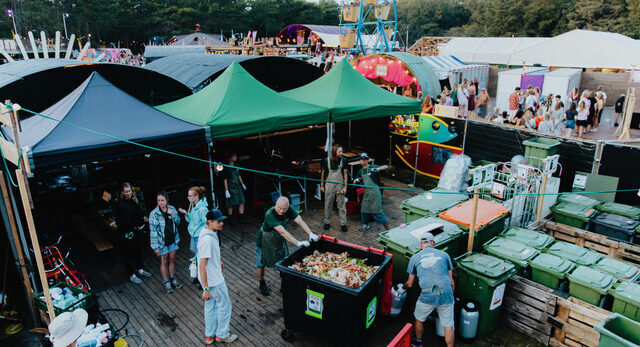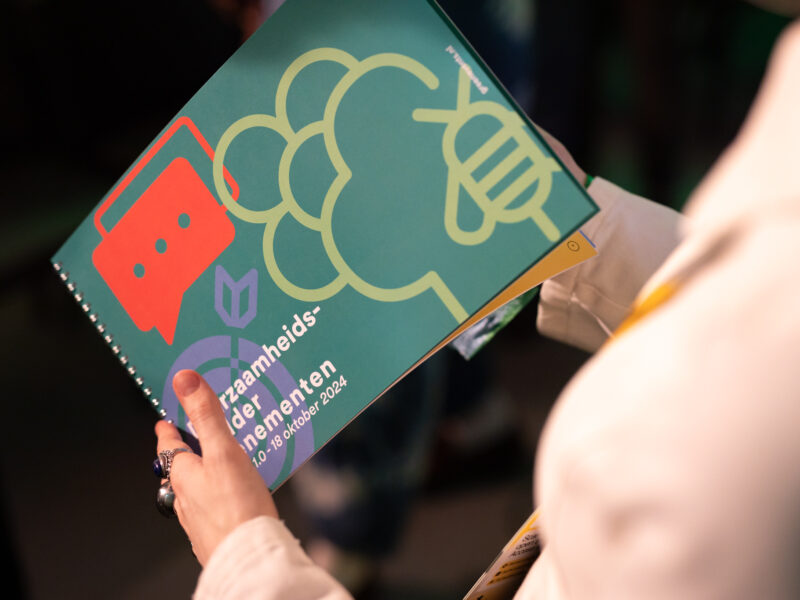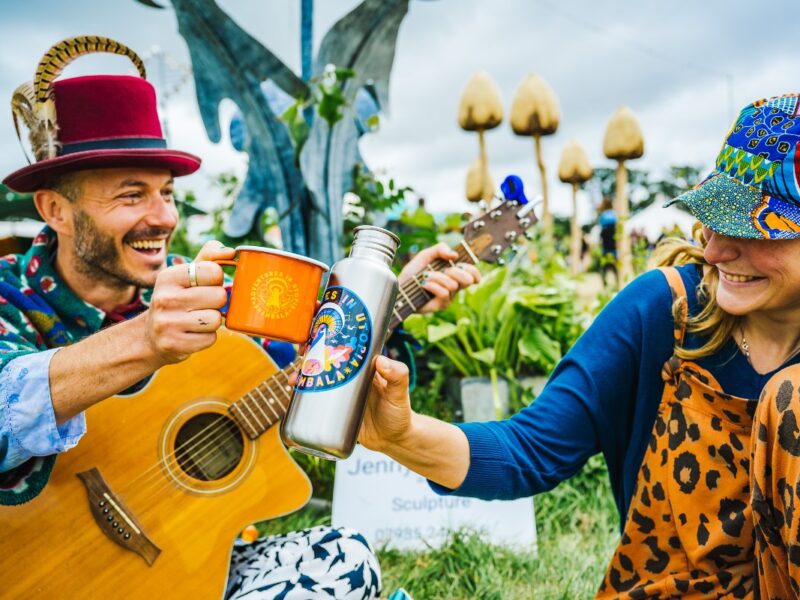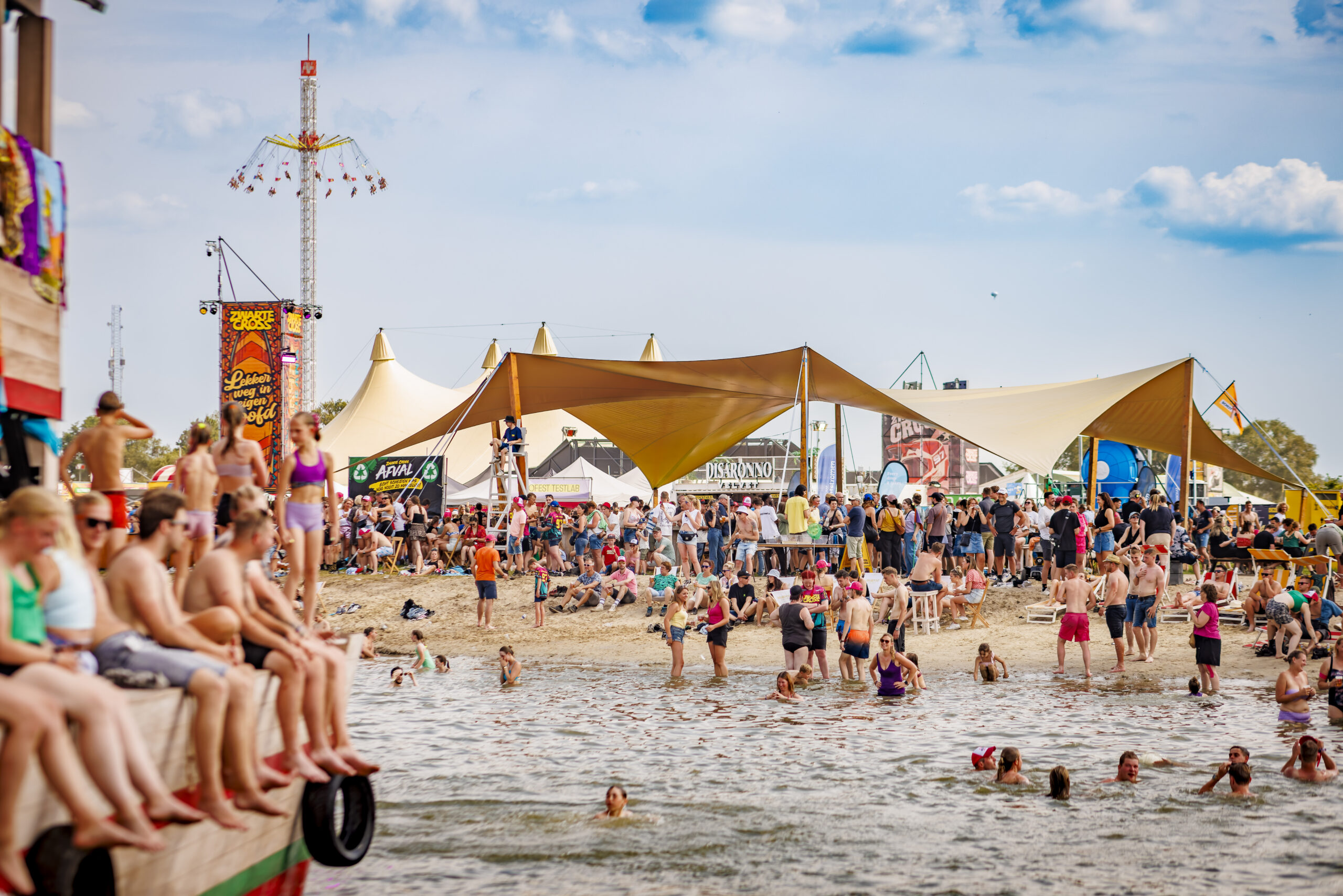
Festivals as a Testing Ground for Smart Water Solutions: Lessons from Zwarte Cross
Read the originally published article via Green Deal Circular Festivals here.
For years, Zwarte Cross has been synonymous with music, spectacle, and celebration. But in 2024, the festival became something more: a testing ground for innovative water solutions. With drought, water shortages, and water quality becoming pressing challenges, festivals can play a unique role in advancing circular water solutions.
Why focus on water at festivals?
Water is essential for a festival like the Zwarte Cross—for drinking, showers, and toilets. But water is becoming increasingly scarce, especially during dry summers. At the same time, intense rainstorms caused by the climate crisis are leading to frequent waterlogging at festivals. These challenges are not unique to festivals—they affect society as a whole. Adopting sustainable and circular water practices offers a solution to these pressing issues.
Festivals also provide the perfect testing environment and a window into society. They offer a unique opportunity to trial innovations with large groups of people in a confined space over a limited time. Moreover, festivals have significant communication power, creating awareness among a broad audience and encouraging sustainable behavior changes.
This is why the Ministry of Infrastructure and Water Management, Rijn & IJssel Water Board, Vechtstromen Water Board, drinking water company Vitens, the Municipality of Oost Gelre, the Water Cooperation of the Achterhoek+ Region, and De Feestfabriek joined forces. Their mission? To test and develop innovative solutions to minimize water consumption, reuse wastewater, and explore new methods of water purification. This collaboration is also part of the Green Deal Circular Festivals, a partnership of over 50 festivals across Europe working towards becoming circular and climate-neutral.
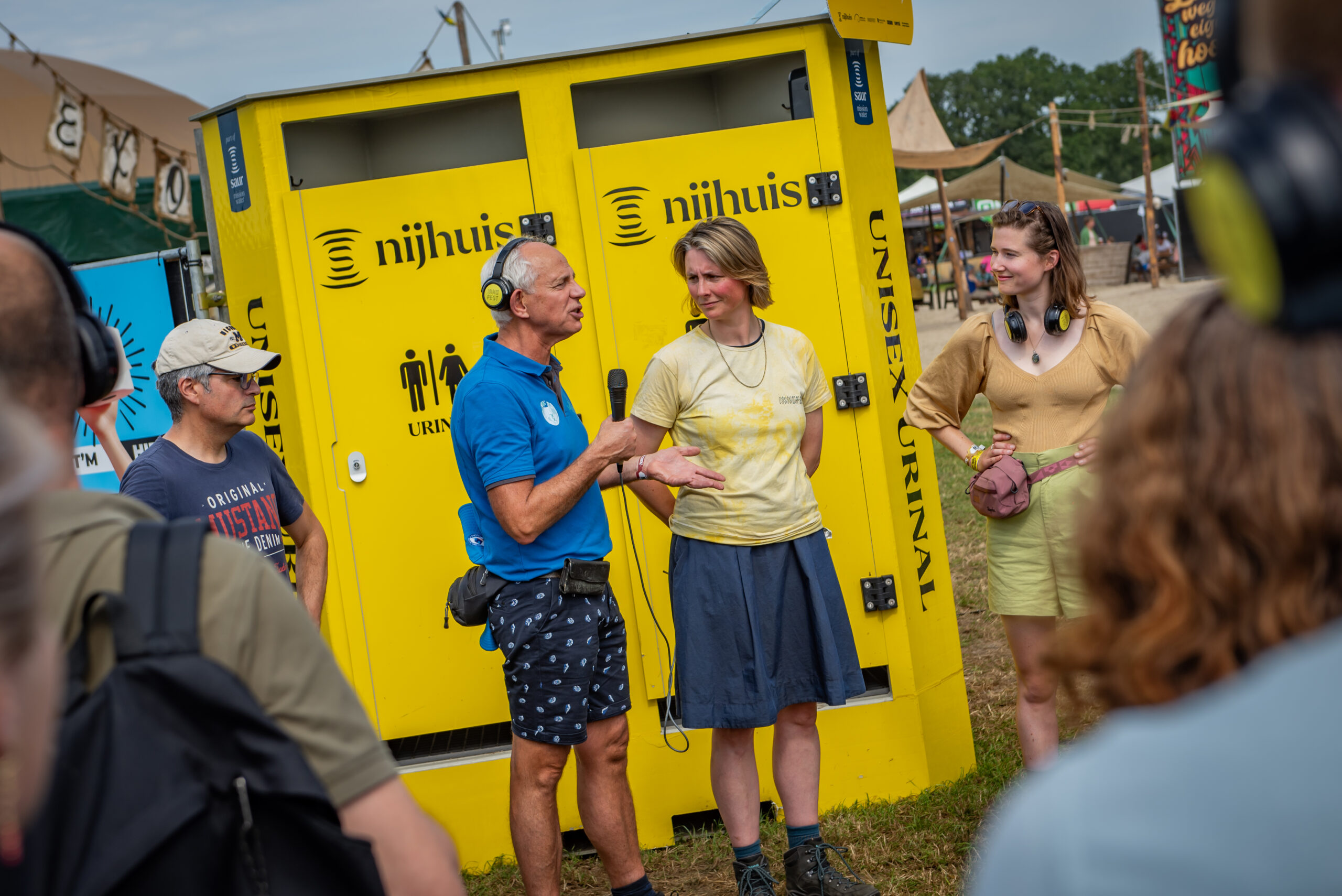
Innovations in action
During the 2024 edition of Zwarte Cross, from July 18 to 21, eight water solutions were tested:
- BluElephant: mobile wastewater treatment.
- Silver Label Unit: produced reusable water from mixed wastewater.
- Greywater Unit: purified shower water for toilet flushing.
- Urine Treatment: processed urine into water and fertilizers.
- Circular Flush: waterless off-grid toilets.
- Powershower: water-saving high-pressure shower.
- Unisex Urinal: inclusive toilet solutions.
- Concentrate Treatment: removed medication and drug residues from wastewater.
An additional research was conducted, and the public was involved to raise awareness about water challenges and understand the acceptance of these solutions.
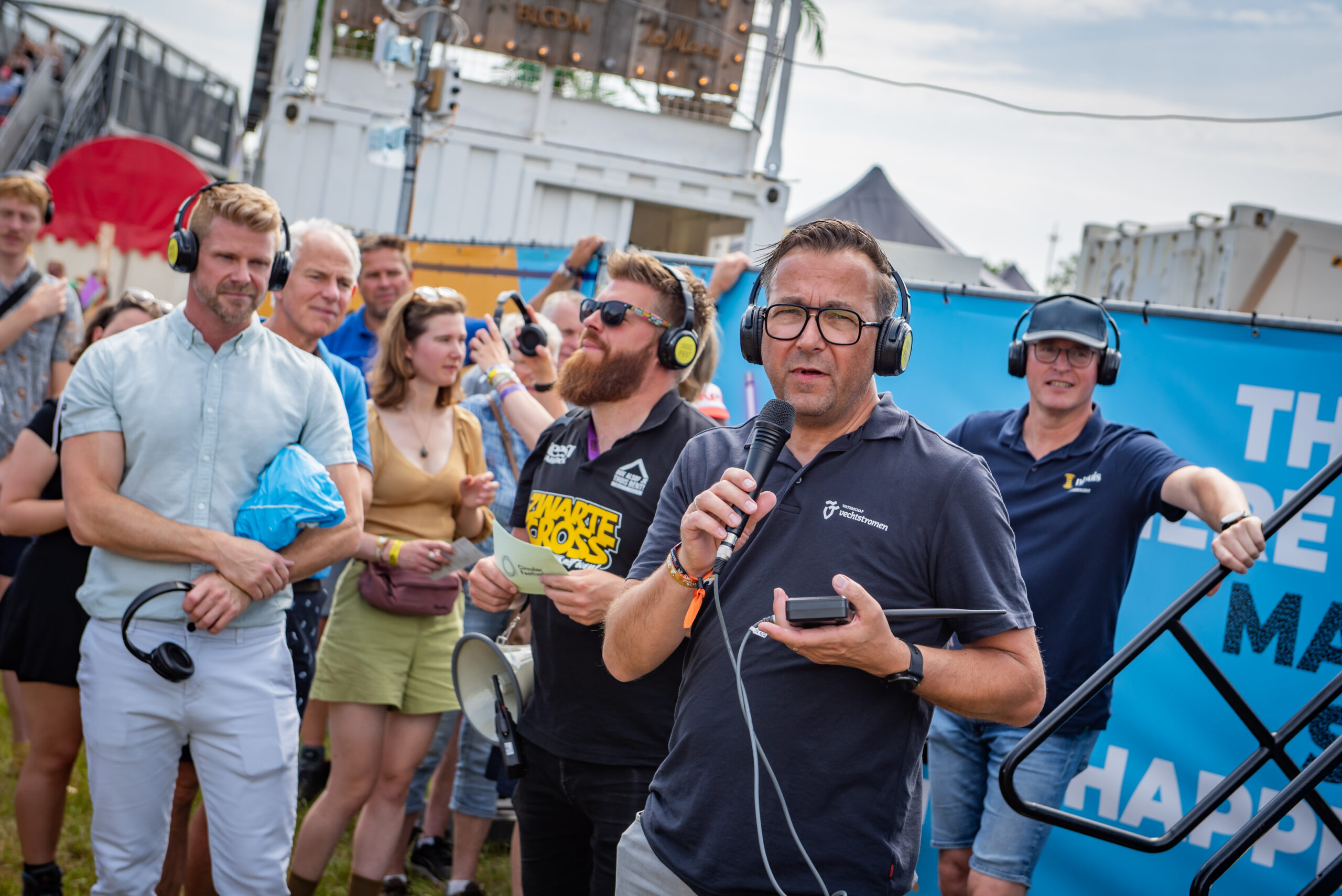
What did we learn?
The innovations worked, but scalability remains a challenge. Buffering solutions, such as using manure bags to temporarily store waste water, proved to be the most effective way to handle peak loads on water treatment plants. Visitors were open to water reuse, provided their comfort wasn’t compromised. Legal barriers—like regulations around water discharge—also remain a significant hurdle.
- Technically Feasible, but Scaling Needed: Circular water solutions are technically viable, but further optimization is required to meet discharge standards and enable large-scale implementation.
- Visitor Support: Festivalgoers are open to water-saving and reuse, especially when comfort is not compromised. This highlights the importance of behavior change and public communication.
- Effective Buffer Systems: Manure bags were crucial in preventing wastewater peak loads.
- Legal and Operational Barriers: Innovations like local discharge of treated water faced legal restrictions, limiting their potential.
- Foundation for a Broader Ecosystem: The project fostered knowledge sharing and networking, essential for further scaling.
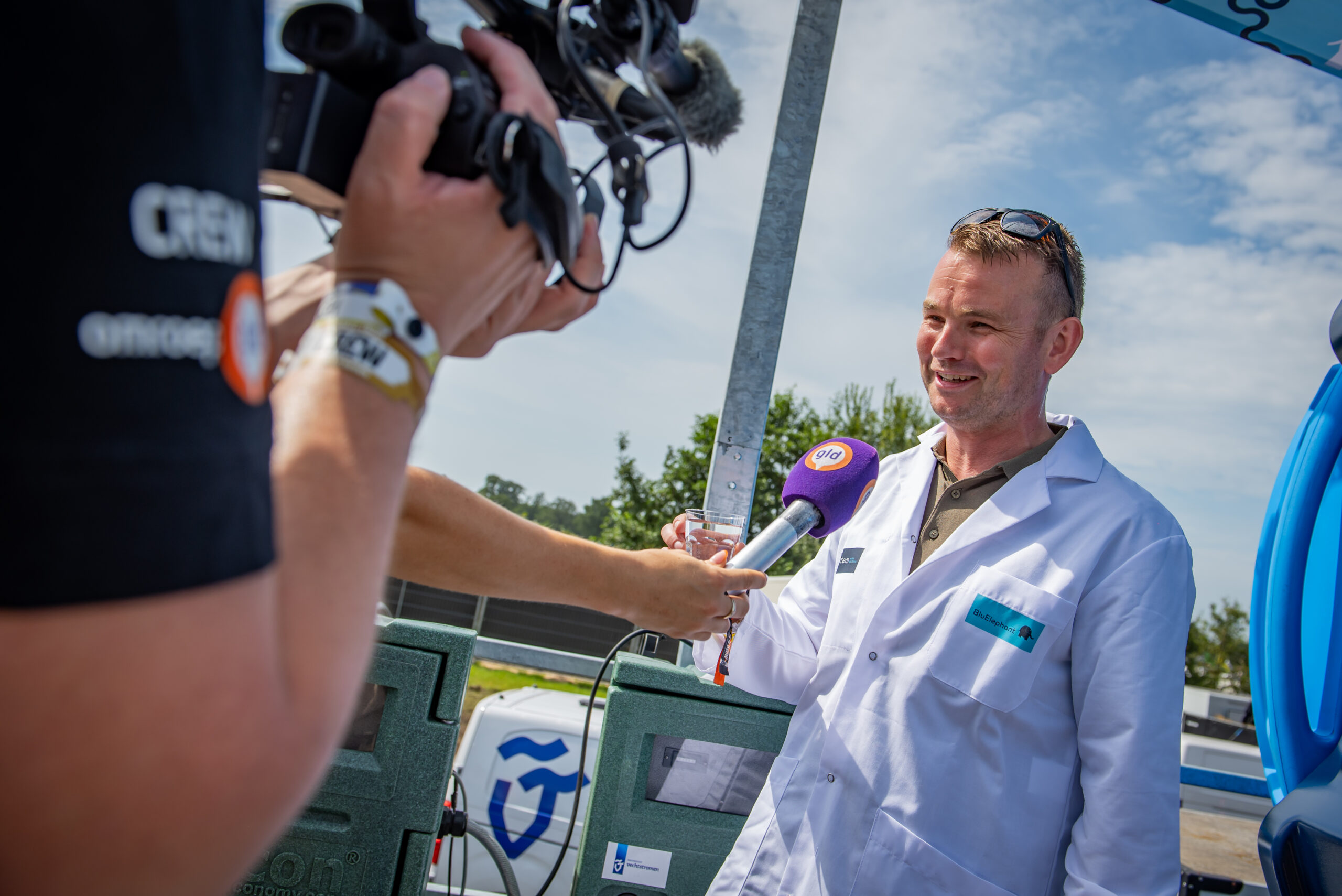
Key Lessons for Event Organizers, Governments, and Water or Innovation Organizations
Event Organizers:
- Opportunities:Sustainable and circular water management is vital to securing the license to operate in the future—a basic requirement for organizing festivals. Circular water solutions help festivals comply with stricter regulations (on water quality, safety, and health) while achieving sustainability goals, such as water-saving via rainwater harvesting and circular sanitation solutions.
- Advice: Use events as testing grounds for new technologies and actively involve visitors in sustainability initiatives.
Governments:
- Opportunities: Festivals serve as platforms to showcase circular technologies and build societal support.
- Advice: Facilitate collaboration between festivals and local governments, leveraging events as ‘living labs’ for broader transitions.
Water and Innovation Organizations:
- Opportunities: Festivals provide unique environments to validate and demonstrate innovations in real-world conditions.
Advice: Strengthen partnerships with event organizers and focus on scalable solutions applicable beyond festivals.
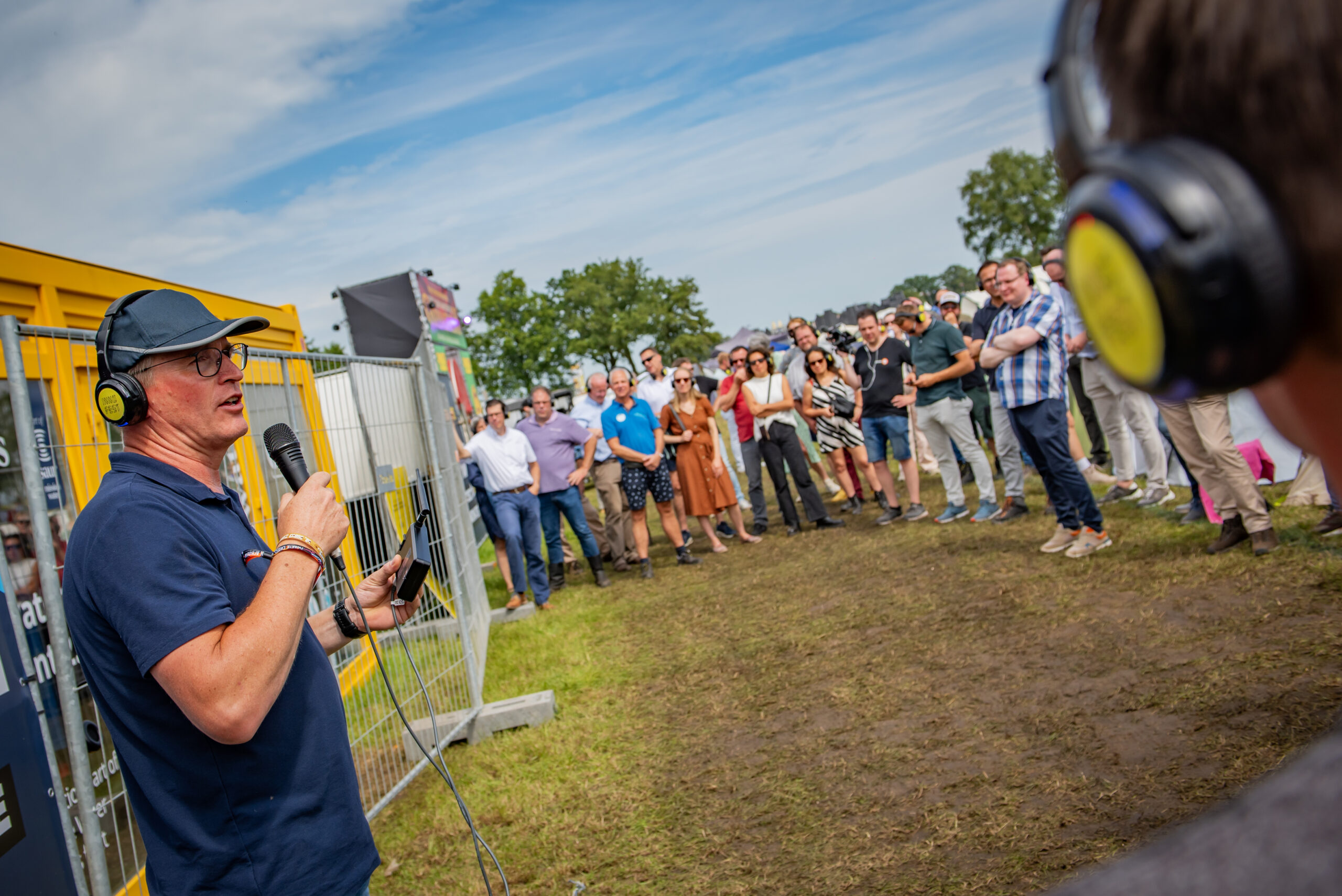
What’s next?
The lessons from Zwarte Cross are invaluable—not only for festivals but also for municipalities, other sectors, and future events. The partners are now working on a follow-up plan for 2025 to scale up the most successful innovations.
How do I get involved?
As a collaboration between Dutch government bodies, water authorities, and local partners, this initiative is exclusively focused on the Dutch context for the time being. As such, we invite Dutch-speaking stakeholders to join our community of practice and stay engaged in advancing sustainable water solutions.


